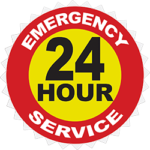
Should you have your furnace inspected? Here are 7 reasons you should!
Cold weather has come to the Houston Area, so it’s very important to think about scheduling your furnace inspection. An annual inspection ensures that your furnace will work when you need it and prevents costly emergency repairs and health risks in your home.
Having your furnace inspected or “tuned up” gives a technician an opportunity to check for possible issues and correct them before they turn into problems (or emergencies). Here are seven reasons why you should schedule your furnace inspection now.
Prolong the Life of Your Furnace
The longer you put off having an annual inspection done on your furnace, the more likely you’re going to have a breakdown (usually when you need your furnace the most). During an inspection, a trained technician may very well find small problems that if left unchecked could result in a major repair. Preventive maintenance on your furnace guarantees that all the parts in your furnace work together to heat your home safely and reliably for years to come.
Prevent Carbon Monoxide Leaks
When the heat exchanger in your furnace becomes cracked, gases like carbon monoxide can escape into your home.
Carbon monoxide is colorless, odorless, and potentially deadly. For your family’s safety, it’s important to inspect your furnace regularly to prevent carbon monoxide poisoning. It’s also wise to install a carbon monoxide detector outside of each bedroom to protect and alert family members.
Clean Built-Up Rust and Dirt
A proper inspection includes checking for rust and dirt that can build up on the burners in your furnace. This type of buildup can create pockets that trap gas and cause hot spots on your furnace’s heat exchanger.
Even if your furnace is new, it still requires inspection as different factors can cause rust and dirt to accumulate.
Replace Worn-Out Parts
Your furnace’s internal parts wear out over time, which could cause it to stop working. A qualified technician should check the parts in your furnace and replace those that could cause problems before your next inspection.
Increase Efficiency
Neglect your furnace’s annual inspections, and particles like dust and dirt can accumulate on any moving parts. This causes your furnace to work harder than necessary to maintain the heat in your home, which compromises efficiency.
During an annual inspection, a technician will clean your furnace’s parts and make sure they work together properly. Your furnace is at its most efficient when its parts are clean, without anything preventing it from working correctly.
Keep Your Warranty Valid
Some manufacturers require a furnace owner to keep up with regular maintenance in order to keep their warranty valid. If you haven’t been getting an inspection on your furnace every year and something goes wrong, the manufacturer could potentially ask to see your maintenance records. If you don’t have any, your warranty could be invalid, meaning you have to pay for repairs yourself within the warranty period.
In an unexpected emergency, you want to make sure that furnace repair or replacement costs will be covered by warranty. Your annual furnace inspection prevents problems and keeps your warranty valid in case of a breakdown.
Clean Air Filters
During your annual furnace inspection, the technician should replace or clean your furnace’s air filters. A clean furnace filter catches dust and debris before it has a chance to circulate through your house, which can affect your indoor air quality. However, this isn’t the only time your furnace’s air filter should be replaced or cleaned during the winter you should check your furnace filter every month.
Whether your furnace is old or new, there are benefits to having it inspected annually by a qualified technician. It will not only save you money, but it keeps your furnace working hard for years to come while also protecting your home and family.







